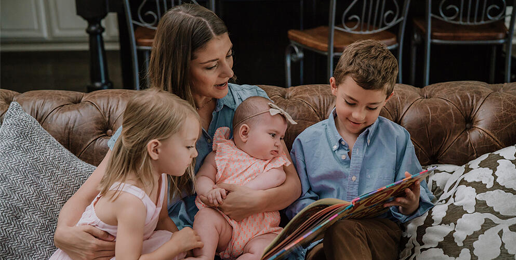
Now and then I venture onto left-leaning websites and read some of their articles. On a visit to HuffPost.com earlier this year, I saw an article that caught my attention. The headline was “I Used To Be An Anti-LGBTQ Evangelical. Here’s What Finally Changed My Heart And Mind.”
The author, Brianna Bell, details her past as a Christian blogger who once stood up for Kirk Cameron after he faced backlash for comments he made to Piers Morgan about homosexuality.
Now she views her comments from back then as “blatantly careless and hurtful.”
My goal today isn’t to critique Bell’s opinions or her article. Instead, I want to draw a lesson from a point she raises in her essay as she describes her evolution on the issue of homosexuality.
After recounting how the Pulse nightclub shooting in Orlando was a “wake-up call” for her, Bell shared that the tragedy “was a starting point for my decision to accept and embrace the LGBTQ community, but my inner change of heart wasn’t instantaneous.” She spent the next few years “contemplating, studying, considering my beliefs and how they affected others. I explored the victimization of the LGBTQ community and read about the abuse that many in the queer community have faced and continue to face.”
It was at this point that Bell made a comment that caught my attention. Describing her continuing transformation, she writes, “I read books that featured same-sex relationships, and it was through these fictional worlds that my reality began to shift.”
This, I think, is an extraordinary testimony about the impact that stories can have on our culture. For Bell, it was these fictional narratives that had a tremendous role in changing her views on a critical subject.
Stories are indeed powerful, and most of us have probably been impacted—for better or worse—by a well-told story. But if that’s true, it brings into sharp focus the need for us to be discerning about the impact of stories both in our own lives and in the lives of our children. If even adults can be shaped by powerful stories, how much more susceptible are our children?
The concern about stories, of course, isn’t confined to those with messages about homosexuality. Our culture is telling stories about a variety of important topics with perspectives that compete with the truth of Scripture. In this age of constantly available media, practicing discernment is more important than ever before—both for us and our children.
Why are stories so powerful?
First, because they can cause us to let our guard down in a way that a lecture, commentary, article, or instructional book never would. These other things are overtly about sending a message, so we’re often more alert to what that message is. And if the message happens to be coming from a source we know promotes views different than our own, we’re even more likely to have our guard up.
But stories? Stories are how we relax. They’re how we enjoy a good time. Whether through books, movies, television, or YouTube, we often turn to stories to entertain us rather than make us think.
In addition to that (or perhaps partially as an extension of it), stories reach into our hearts. They draw our sympathies toward the characters of the author’s choosing, and in so doing, into sympathy with that character’s plight. Stories can also serve to normalize things that might be strange, unusual, or different to us at the start.
Again, that’s not all bad. It all depends on what is being normalized and what views we’re being drawn into sympathy with.
As an aside, it’s important for us to remember that, as Christians, we’re not called to look down on anyone or view anyone as less human, less loved by God, or more in need of redemption than we ourselves. We should never lose our Biblical convictions, but nor should we forget that we’re called to love our neighbors. Viewing anyone—regardless of their culture, beliefs, or sins—as somehow outside the realm of God’s grace or beyond our responsibility to love is incompatible with Biblical Christianity.
Stories have been told in a variety of ways down through the ages, but never before have we been so surrounded by narratives. It would be foolhardy to think that these stories have no impact.
As Justin Whitmel Earley writes in his book The Common Rule, “We become the stories we consume.”
Bell reflects that reality in her essay. “As I’ve evolved and shed many of my conservative view[s],” she writes, “I’ve had to wrestle with how to abandon an old ideology while remaining committed to my faith. While I am still a devoted Christian, I’ve had to work to untangle myself from doctrine that is harmful and strive to adopt an intersectional and inclusive theology.”
In other words, she had to abandon the straightforward teaching of Scripture because of how her views changed in response to the culture.
It’s easy to point and scold, but how easy is it for us to do the same thing in one way or another? We allow our hearts to get out of sync with good theology, and then, instead of using our theology to get our hearts back on track, we reorient our theology to fit our wayward hearts.
This, by the way, can happen to our children as well. And that’s why we need to not only be teaching them what the Bible says, but also helping them filter and sift and analyze the stories our culture is telling. Because stories are powerful, and our culture is full of them. If we don’t teach our children how to use discernment, they’ll easily be led astray by the power of a story well told.
Subscribe to the IFI YouTube channel
and never miss a video report or special program!

























